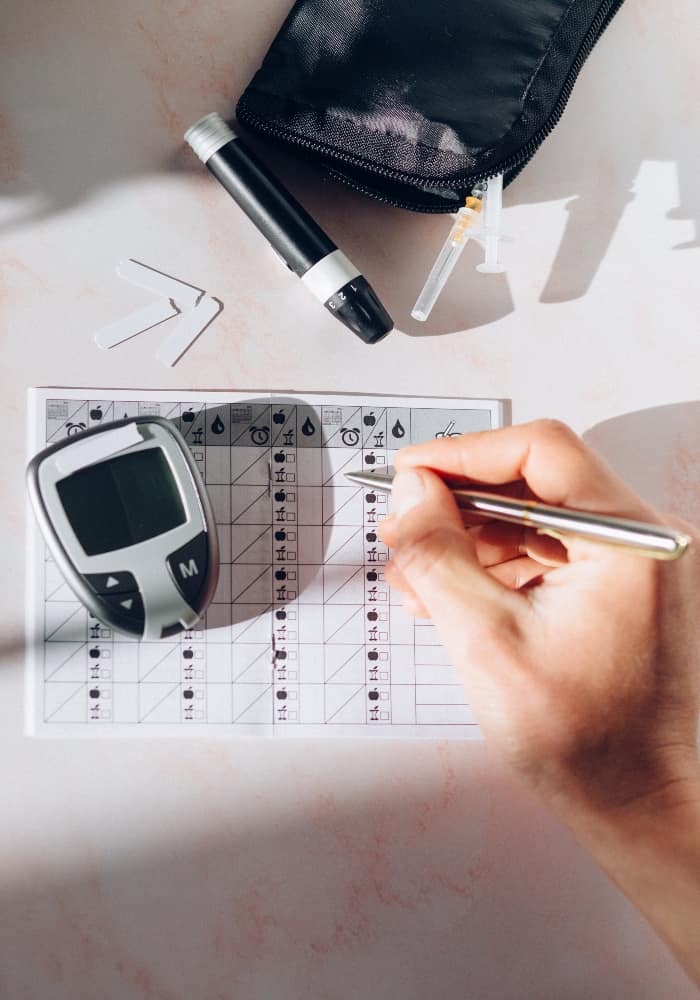Joining a long line of senior leaders of the government who have put their feet in their mouths since the attack on Mumbai, the navy chief, Admiral Sureesh Mehta, called the national media a “disabling instrument”
Admiral Mehta also trains guns on intel agencies, claiming their inputs were not ‘actionable’; media hits back, says he is trying to deflect blame
NEW DELHI: Joining a long line of senior leaders of the government who have put their feet in their mouths since the attack on Mumbai, the navy chief, Admiral Sureesh Mehta, on Tuesday called the national media a “disabling instrument” of the country, and incorrectly held NDTV coverage responsible for the death of three soldiers during the Kargil conflict.
Mehta blasted the media for its coverage of the Mumbai mayhem, while absolving his own force of responsibility for the death of innocents in the city.
As an example of the media's “destructive” role, Mehta incorrectly cited an NDTV shot of Kargil which he said resulted in the death of three soldiers. NDTV Group Editor Barkha Dutt, who covered Kargil for the channel, said, “I would urge Admiral Mehta to read General VP Malik's book on the Kargil conflict wherein General Malik refers to some malicious rumours that implied that media coverage could have been responsible for fatalities. General Malik clearly clarifies that given that the army was using satellite phones, more than sixty of them, and that the rocket launchers used by the army were emitting more light than what 100s of cameras manage together, this was nothing but ill-informed rumour-mongering. Admiral Mehta should at least get his facts right.”
In his first press conference after the Mumbai attacks, the navy chief, whose force is tasked with protecting the international maritime boundary of the country, put up an aggressive defence of his force, while giving the media a long moral lecture about coverage of such events. Referring to reports that the defence minister had pulled him up on Monday for the navy's lapses, Mehta said: “You have put my reputation in the dock. I think the press has a responsibility.”
The navy chief conveniently overlooked the fact that right through the Mumbai operation there were several instances of the military leadership on the ground, including navy personnel, trying to corner media glory. Before the NSG was airdropped on Nariman House, the media was invited to record it. The navy paraded its marine commandos before the press even before the operation was over, while the army's southern command chief had to be shooed away from Mumbai after he landed there to brief the media. There were several other 'voluntary' interviews and media inputs from the security personnel deployed in Mumbai. The NSG chief jumped the gun by addressing a press conference to proclaim the Taj hotel had been cleared on Friday morning, only to be followed by firing by terrorists for another day and night.
The navy chief's tirade also comes after a series of insensitive statements by senior leaders during and after the 60-hour siege of Mumbai that claimed nearly 200 lives and injured over 300. Maharashtra deputy chief minister RR Patil said such untoward incidents were bound to happen from time to time in a big city, while Mukhtar Abbas Naqvi of the BJP said those protesting against political inaction were behaving like Kashmiri terrorists.
Apart from targeting the media, Mehta also dismissed specific inputs from the intelligence agencies about an impending attack on the Taj from the sea as not “actionable”. He said it is the system which has to be blamed for the attacks. His statements go contrary to the government's stand of fixing responsibility, which forced out the Union home minister as well as the Maharashtra home minister. An investigation has also been initiated to see who else erred. But the navy chief believes it was only a “systemic failure.”
The DNA on Sunday, and later many other media outlets, had reported there were specific intelligence inputs showing that an attack on Mumbai was going to happen. But Admiral Mehta said he wasn't aware of any intelligence warning that was specific about the Mumbai attack. “There is no such report I am aware of,” he said. “'India is under terrorist threat' - is that actionable?” he asked.
When asked specifically if they had on November 19 received an alert from the Research and Analysis Wing (R&AW), reported by DNA and other media, Mehta retorted, “I am not aware of any intercept.”
Admiral Mehta did not say if the navy was taking action against any of its personnel for acts of omission in protecting the maritime boundary. But he said there were gaps in the maritime defence of India. And that the presence of a large number of fishing trawlers within Indian waters makes it difficult to provide a foolproof security system.
But he didn't say how so many terrorists could crossover from Pakistani waters into India, despite the fact it is India's most sensitive maritime boundary. The same route had been used for smuggling explosives for the 1993 blasts into Mumbai and for several other nefarious activities.
Mehta alternated between being aggressive and sarcastic in his interaction with the media. Reacting to this, the president of the editors guild and editor-in-chief of CNN-IBN, Rajdeep Sardesai, said, “Let us not shoot the messenger. This was a huge story that demanded this kind of intensive coverage. There may have been instances where the due regard and restraint was not shown. However you can't tar the entire media with the same brush. The government should get its information system in order and create a proper protocol for dissemination of information.”
![submenu-img]() US imposes sanctions on Chinese, Belarus firms for providing ballistic missile tech to Pakistan
US imposes sanctions on Chinese, Belarus firms for providing ballistic missile tech to Pakistan![submenu-img]() 'Don't have any comment': White House mum on reports of Israeli strikes in Iran
'Don't have any comment': White House mum on reports of Israeli strikes in Iran![submenu-img]() Yes Bank co-founder Rana Kapoor gets bail after four years in bank fraud case
Yes Bank co-founder Rana Kapoor gets bail after four years in bank fraud case![submenu-img]() Barmer Lok Sabha Polls 2024: Check key candidates, date of voting and other important details
Barmer Lok Sabha Polls 2024: Check key candidates, date of voting and other important details![submenu-img]() This star once lived in garage, earned Rs 51 as first salary; now charges Rs 5 crore per film, is worth Rs 335 crore
This star once lived in garage, earned Rs 51 as first salary; now charges Rs 5 crore per film, is worth Rs 335 crore![submenu-img]() DNA Verified: Is CAA an anti-Muslim law? Centre terms news report as 'misleading'
DNA Verified: Is CAA an anti-Muslim law? Centre terms news report as 'misleading'![submenu-img]() DNA Verified: Lok Sabha Elections 2024 to be held on April 19? Know truth behind viral message
DNA Verified: Lok Sabha Elections 2024 to be held on April 19? Know truth behind viral message![submenu-img]() DNA Verified: Modi govt giving students free laptops under 'One Student One Laptop' scheme? Know truth here
DNA Verified: Modi govt giving students free laptops under 'One Student One Laptop' scheme? Know truth here![submenu-img]() DNA Verified: Shah Rukh Khan denies reports of his role in release of India's naval officers from Qatar
DNA Verified: Shah Rukh Khan denies reports of his role in release of India's naval officers from Qatar![submenu-img]() DNA Verified: Is govt providing Rs 1.6 lakh benefit to girls under PM Ladli Laxmi Yojana? Know truth
DNA Verified: Is govt providing Rs 1.6 lakh benefit to girls under PM Ladli Laxmi Yojana? Know truth![submenu-img]() Remember Ali Haji? Aamir Khan, Kajol's son in Fanaa, who is now director, writer; here's how charming he looks now
Remember Ali Haji? Aamir Khan, Kajol's son in Fanaa, who is now director, writer; here's how charming he looks now![submenu-img]() Remember Sana Saeed? SRK's daughter in Kuch Kuch Hota Hai, here's how she looks after 26 years, she's dating..
Remember Sana Saeed? SRK's daughter in Kuch Kuch Hota Hai, here's how she looks after 26 years, she's dating..![submenu-img]() In pics: Rajinikanth, Kamal Haasan, Mani Ratnam, Suriya attend S Shankar's daughter Aishwarya's star-studded wedding
In pics: Rajinikanth, Kamal Haasan, Mani Ratnam, Suriya attend S Shankar's daughter Aishwarya's star-studded wedding![submenu-img]() In pics: Sanya Malhotra attends opening of school for neurodivergent individuals to mark World Autism Month
In pics: Sanya Malhotra attends opening of school for neurodivergent individuals to mark World Autism Month![submenu-img]() Remember Jibraan Khan? Shah Rukh's son in Kabhi Khushi Kabhie Gham, who worked in Brahmastra; here’s how he looks now
Remember Jibraan Khan? Shah Rukh's son in Kabhi Khushi Kabhie Gham, who worked in Brahmastra; here’s how he looks now![submenu-img]() DNA Explainer: What is cloud seeding which is blamed for wreaking havoc in Dubai?
DNA Explainer: What is cloud seeding which is blamed for wreaking havoc in Dubai?![submenu-img]() DNA Explainer: What is Israel's Arrow-3 defence system used to intercept Iran's missile attack?
DNA Explainer: What is Israel's Arrow-3 defence system used to intercept Iran's missile attack?![submenu-img]() DNA Explainer: How Iranian projectiles failed to breach iron-clad Israeli air defence
DNA Explainer: How Iranian projectiles failed to breach iron-clad Israeli air defence![submenu-img]() DNA Explainer: What is India's stand amid Iran-Israel conflict?
DNA Explainer: What is India's stand amid Iran-Israel conflict?![submenu-img]() DNA Explainer: Why Iran attacked Israel with hundreds of drones, missiles
DNA Explainer: Why Iran attacked Israel with hundreds of drones, missiles![submenu-img]() This star once lived in garage, earned Rs 51 as first salary; now charges Rs 5 crore per film, is worth Rs 335 crore
This star once lived in garage, earned Rs 51 as first salary; now charges Rs 5 crore per film, is worth Rs 335 crore![submenu-img]() Meet actress, who worked as cook for free food, mopped floors, one Instagram post changed her life, is now worth…
Meet actress, who worked as cook for free food, mopped floors, one Instagram post changed her life, is now worth… ![submenu-img]() UP man arrested for booking cab from Salman Khan's house under Lawrence Bishnoi's name
UP man arrested for booking cab from Salman Khan's house under Lawrence Bishnoi's name ![submenu-img]() 'Justice milega': Ankita Lokhande talks about Sushant Singh Rajput, reveals she's still connected with his family
'Justice milega': Ankita Lokhande talks about Sushant Singh Rajput, reveals she's still connected with his family![submenu-img]() Rajkummar Rao reacts to plastic surgery rumours, admits he got fillers: 'If something gives me confidence...'
Rajkummar Rao reacts to plastic surgery rumours, admits he got fillers: 'If something gives me confidence...'![submenu-img]() IPL 2024: KL Rahul, Quinton de Kock star in Lucknow Super Giants' dominating 8-wicket win over Chennai Super Kings
IPL 2024: KL Rahul, Quinton de Kock star in Lucknow Super Giants' dominating 8-wicket win over Chennai Super Kings![submenu-img]() DC vs SRH, IPL 2024: Predicted playing XI, live streaming details, weather and pitch report
DC vs SRH, IPL 2024: Predicted playing XI, live streaming details, weather and pitch report![submenu-img]() Watch: Virat Kohli's cheeky 'your wife' remark to Dinesh Karthik leaves RCB teammates in splits
Watch: Virat Kohli's cheeky 'your wife' remark to Dinesh Karthik leaves RCB teammates in splits ![submenu-img]() DC vs SRH IPL 2024 Dream11 prediction: Fantasy cricket tips for Delhi Capitals vs Sunrisers Hyderabad
DC vs SRH IPL 2024 Dream11 prediction: Fantasy cricket tips for Delhi Capitals vs Sunrisers Hyderabad![submenu-img]() 'Kohli said it's not an option, just...': KL Rahul recalls his IPL debut for RCB in 2013
'Kohli said it's not an option, just...': KL Rahul recalls his IPL debut for RCB in 2013![submenu-img]() Canada's biggest heist: Two Indian-origin men among six arrested for Rs 1300 crore cash, gold theft
Canada's biggest heist: Two Indian-origin men among six arrested for Rs 1300 crore cash, gold theft![submenu-img]() Donuru Ananya Reddy, who secured AIR 3 in UPSC CSE 2023, calls Virat Kohli her inspiration, says…
Donuru Ananya Reddy, who secured AIR 3 in UPSC CSE 2023, calls Virat Kohli her inspiration, says…![submenu-img]() Nestle getting children addicted to sugar, Cerelac contains 3 grams of sugar per serving in India but not in…
Nestle getting children addicted to sugar, Cerelac contains 3 grams of sugar per serving in India but not in…![submenu-img]() Viral video: Woman enters crowded Delhi bus wearing bikini, makes obscene gesture at passenger, watch
Viral video: Woman enters crowded Delhi bus wearing bikini, makes obscene gesture at passenger, watch![submenu-img]() This Swiss Alps wedding outshine Mukesh Ambani's son Anant Ambani's Jamnagar pre-wedding gala
This Swiss Alps wedding outshine Mukesh Ambani's son Anant Ambani's Jamnagar pre-wedding gala













































)
)
)
)
)
)